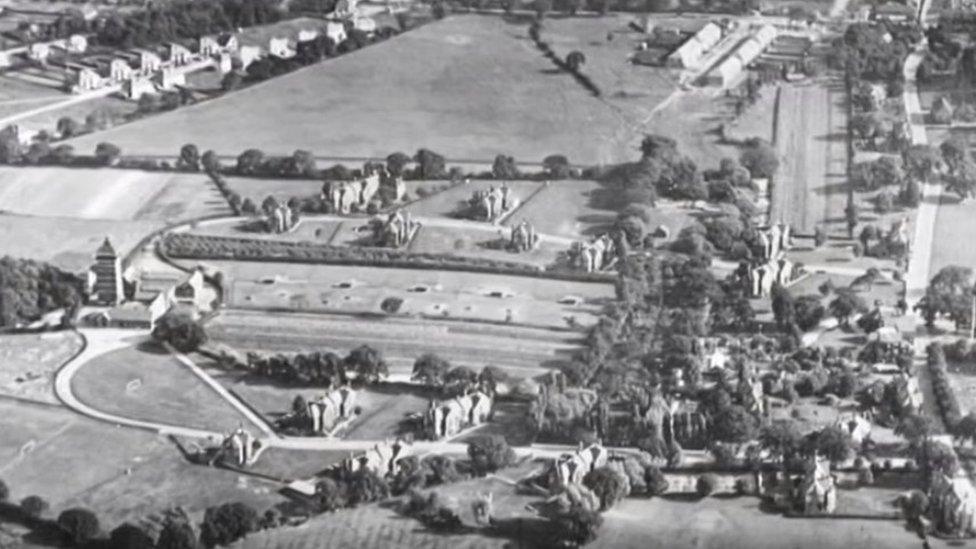Shirley Oaks: Abuse survivors had 'childhood stolen'
- Published

An archive picture shows Shirley Oaks children's home - located in Croydon but run by Lambeth Council
Children who were abused and neglected while in the care of Lambeth Council "had their childhood stolen", an investigation has heard.
The Independent Inquiry into Child Sexual Abuse heard there were up to 48 deaths between 1970 and 1990.
Children's home Shirley Oaks had up to 350 children under the age of 17 living there until its closure in 1983.
Barristers representing victims accused Lambeth Council of knowing about the abuse, but doing nothing.
The inquiry hearing, which is due to last four weeks, is investigating whether there were child protection failures by public authorities.
On Thursday, the panel heard evidence from Annie Hudson, strategic director of children's services at Lambeth Council.
She began by apologising to survivors of abuse and their families, stating she felt "an enormous sense of shame".
She added: "It's clear to me that a very, very great number of children effectively had their childhood stolen as a consequence of the abuse... and general neglect during a long period of time."
The inquiry heard how a baby died of asphyxiation after she slipped out of a safety harness while she slept on the top bunk of a bed.
Evidence was heard of the baby's sister telling her mother on the phone that the council was force feeding the baby and tied her on the bed.
The inquiry heard the mother of the baby commented, at the time of the death: "If I had done that, they would have put me in (HMP) Holloway."
Evidence was also heard of a young boy who was found dead in the bathroom of a children's home, after he was molested at the home.
When the boy was 12 years old, the abuse was investigated by police, but the case was thrown out.
Ms Hudson said Lambeth Council was aware of 15 incidents of child deaths under its care, which contrasted with another set of data presented at the inquiry showing 48 deaths over 20 years.
When asked about the disparity in the numbers, Ms Hudson said: "There was not, until relatively recently, a strong robust system for recording this information."
The inquiry continues.
- Published30 June 2020

- Published29 June 2020
